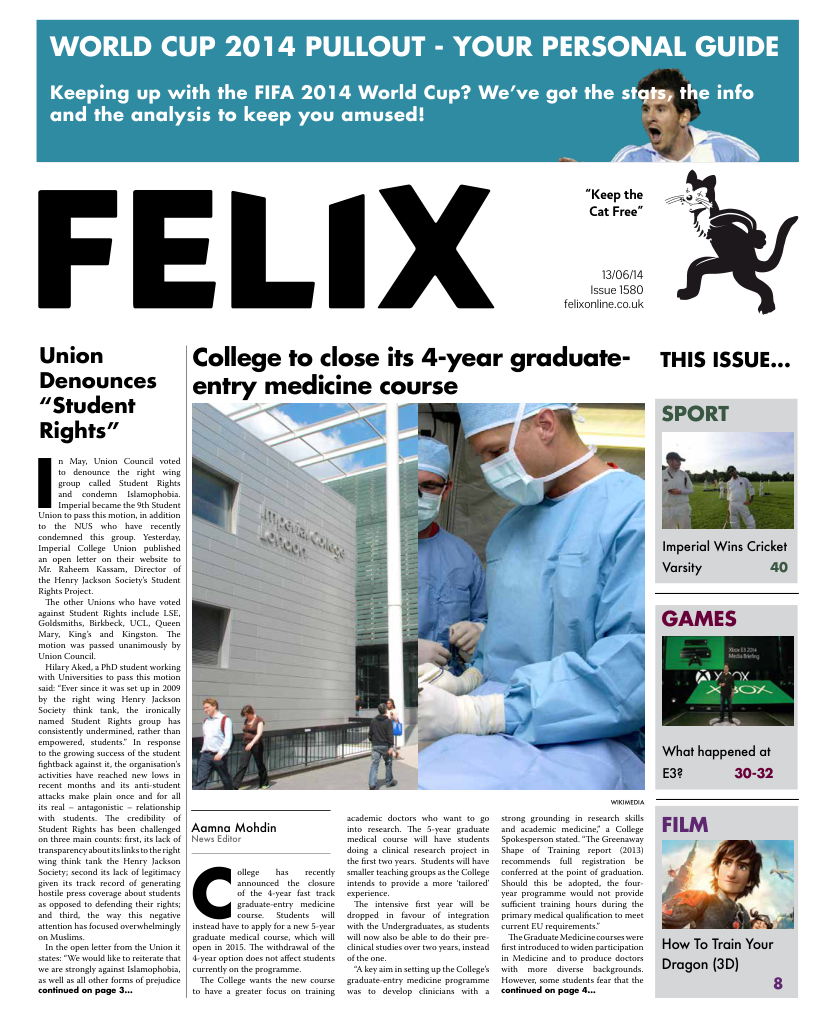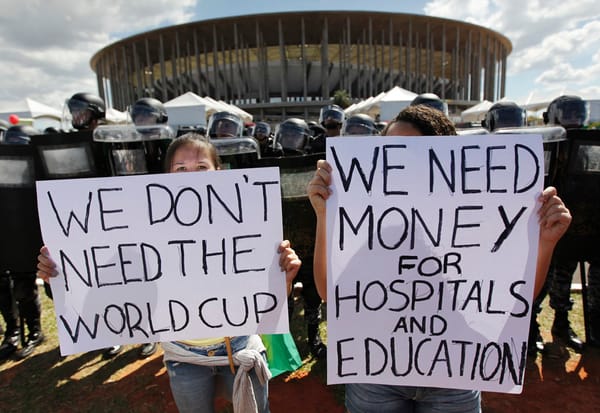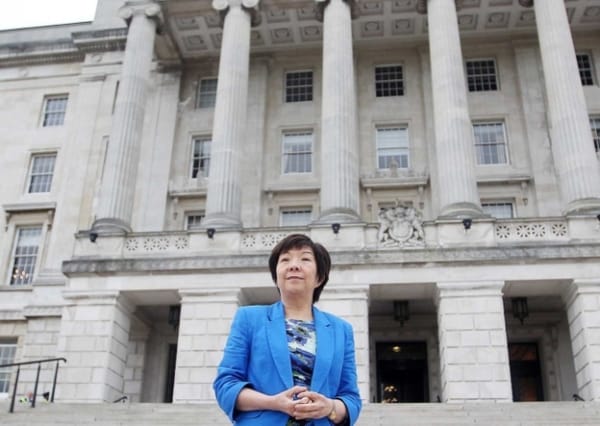What can we do about FIFA?
The controversy behind this bureaucratic corrupt organisation.
It shows the sort of crisis that FIFA is in that, two days away from the start of their flagship tournament (the World Cup in Brazil for the few of you who are not already aware of it), there have been calls from all of Europe’s football leaders demanding that FIFA President Sepp Blatter step down within the next year. Such is the crisis that, two days before the carnival that we have been promised begins, we are instead talking about where the World Cup in 2022 should be held. This crisis is in fact so big that all of FIFA’s sponsors (bar Emirates), on the eve of the biggest sports event in the world (bar the Olympics, in my opinion), are threatening to back out if a full investigation is not launched into allegations of corruption in the sport’s organising body.
It speaks volumes about the position Mr Blatter finds himself in that he thought the only possible defence of Qatar was to say that the world was “being racist” for accusing it of bribery. This from the man who, last year, said that racism could be solved “with a handshake”. Devoid of ideas? Perhaps. Deluded? Probably. Desperate? Definitely.
But what can we do about FIFA? Sadly, we can’t do much really. It is all well and good for newspapers such as The Times and The Telegraph to preach allegation upon allegation (admittedly with a large amount of evidence to support it) to the choir that is the British public, but FIFA aren’t worried about it. As far as they are concerned, they are untouchable. They feel that they are safe because they have appointed an “independent investigator” and have banned the vice-president whom the allegations are centred on. But then they subtly ignore the fact that Mohammed Bin-Hammam (the FIFA Vice-President who was banned) was at the time fighting an election against (you guessed it) incumbent Sepp Blatter. And when the Court of Arbitration for Sport overturned FIFA’s decision, Bin-Hammam was subsequently hit with a new ban, for “conflicts of interest”.
“FIFA needs to change.” Those are the four words that have been on the tip of every football fan’s tongue for the past year when talking about the sport’s governing body. It’s too much of a closed shop at the moment for anyone’s liking. Plenty have talked about it – but nothing has happened. For anything to sctually happen one person needs to go. Sepp Blatter has said every year that he will retire at the next election; but, when the new election looms, Blatter announces his intention to run and everyone else withdraws. They are scared of him, not daring to oppose him. Jerome Champagne, who announced his intention to run in next year’s elections this January, said that if Blatter was to run he would have “no” chance of winning. That’s worrying, given the current situation.
So how do we get rid of Blatter? At the moment it looks as though our only chance is if he realises (somewhat late I concede) that if he doesn’t resign then his reputation, and that of FIFA, will be irreversibly damaged, if it is not already. He might be able to save face though, if he decides to restage the bids to the 2018 (currently planned for Russia) and 2022 World Cups.
The questions will remain though – can we trust any future bids that are voted for by FIFA? Will anyone want to bid for what may in the future be seen as a tainted tournament? And, perhaps most importantly, assuming these allegations about corruption are true (and with the vast wealth of evidence, it’s hard not to), will we ever be able to trust FIFA again? I’m not so sure that I will be able to.
Last night (Monday), when describing how accusing Qatar of buying votes is “racist”, Mr Blatter said that the allegations were “sad”. This may be the first time in years that I’ve agreed with him
It is all a bit sad really.









